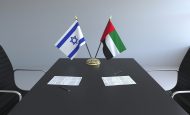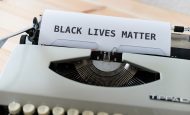Al-Shabaka-The Palestinian Policy Network
Profile
| Country/Territory | United States |
|---|---|
| Website | http://al-shabaka.org/ |
| Founded | 2010 as a “think tank without borders… whose mission is to educate and foster public debate on Palestinian human rights and self-determination within the framework of international law.” |
| In their own words | “[d]raw upon the vast knowledge and experience of the Palestinian people, whether under occupation, in exile, or in Israel, so as to engage the broadest spectrum of perspectives in debate on policy and strategy” and “[c]ommunicate ideas and strategies on resolving the Palestinian-Israeli conflict to… interested parties worldwide.” |
Funding
- In 2021, total income was $619,526; total expenses were $334,735.
- Claims to be “fully funded through the contributions of its members and other Palestinian supporters of its mission and goals.”
- 2021 donors include Switzerland, Rockefeller Brothers Fund, Open Society Foundation, Foundation for Middle East Peace, and Heinrich Boell Stiftung.
- Al-Shabaka lists “Sustaining Donors” as Wesam Ahmad, Rebecca Vilkomerson, Sarah Anne Minkin, Abigail Abysalh-Metzger, Noura Erakat, among others.
- Wesam Ahmad is the head of the Center for Applied International Law at Al-Haq. In December 2021, Ahmad spoke at a UN Committee on the Exercise of the Inalienable Rights of the Palestinian People (CEIRPP) conference calling for “Supporting the process at the ICC, taking measures to ban settlement products, supports of the UN database on business enterprises involved in the settlement enterprise.”
- On October 22, 2021, the Israeli Ministry of Defense declared Al-Haq a “terror organization” because it is part of “a network of organizations” that operates “on behalf of the ‘Popular Front’.”
- Rebecca Vilkomerson served as the Executive Director of Jewish Voice for Peace. JVP’s strategy is to create “a wedge” within the American Jewish community, while working toward the goal of eliminating U.S. economic, military, and political aid to Israel.
- Sarah Anne Minkin is the Director of Programs & Partnerships at Foundation for Middle East Peace (FMEP). FMEP has provided grants to a number of highly biased and politicized NGOs that promote BDS campaigns and antisemitic rhetoric.
- Abigail Abysalh-Metzger is the Pax Christi International representative to the UN’s NGO Working Group on Israel/Palestine.
- Noura Erakat served as the US-based Legal Advocacy Consultant for the radical Palestinian NGO BADIL. She is also a vocal anti-Israel activist; an assistant professor at George Mason University; and former legal campaigner for “US Campaign to End the Israeli Occupation,” where she “helped seed BDS campaigns” and facilitate “lawfare” cases against two former Israeli officials in US federal courts.
- Wesam Ahmad is the head of the Center for Applied International Law at Al-Haq. In December 2021, Ahmad spoke at a UN Committee on the Exercise of the Inalienable Rights of the Palestinian People (CEIRPP) conference calling for “Supporting the process at the ICC, taking measures to ban settlement products, supports of the UN database on business enterprises involved in the settlement enterprise.”
- Al Shabaka via the Middle East Policy Network received $475,000 in 2017-2024 from the Rockefeller Brothers Fund.
- In 2021, Al Shabaka received CHF 73,845 from Switzerland.
Activities
- Al-Shabaka rhetoric includes accusations of “ethnic cleansing,” “apartheid,” “genocide,” “collective punishment,” and “war crimes,” as well as supporting a Palestinian “right of return.” Is also a major platform for justifications for BDS and related campaigns. Claims that the “opinions expressed in Al-Shabaka publications do not necessarily represent the views of the organization, the policy advisors or members, or its donors. Nor is Al-Shabaka responsible for any positions or actions by policy advisors or members in the network.”
- In June 2022, president of Al-Shabaka’s board, Tareq Baconi, participated in a conference titled “Hijacking Memory: The Holocaust and the New Right.” Baconi’s lecture, “Palestine and Holocaust Memory Politics,” focused on “the memory of the Holocaust [] being deployed to expand Israel’s colonization of Palestine, including but not solely through the weaponization of charges of anti-Semitism to dismantle the movement for Palestinian rights.”
- In March 2022, Al-Shabaka Program Advisor Alaa Tartir drew false equivalencies between Russia/Ukraine and Israel, stating that “As painful as it might sound, the ‘Ukraine moment’ offers Palestinians a strategic opportunity to set the record straight where resistance, refugees, freedom, liberation, political rights and BDS are concerned.
- In January 2022, Al-Shabaka policy analyst Yara Hawari published an article accusing Israel of “greenwashing,” claiming that the Negev “has faced unrelenting colonisation since the establishment of the state of Israel and the ethnic cleansing of Palestine in 1948.” She further claimed that “the primary aim of Israel’s tree-planting projects is not to help the environment, but to steal and ethnically cleanse Palestinian land.”
- In October 2021, Al-Shabaka condemned the decision by the Israeli Ministry to designate six Palestinian NGOs as terrorist organizations. According to Al-Shabaka, “We stand in solidarity with the six organizations and their staff – including Al-Shabaka policy members…this is only the latest step in the regime’s ongoing efforts to suppress the Palestinian struggle for rights and liberation.”
- In April 2021, Al-Shabaka Policy Member Rania Muhareb published an article welcoming the decision of the ICC to launch a formal investigation into “the Situation in Palestine.” According to the article, “international criminal justice – while essential to challenging Israeli impunity – must be supplemented by sanctions and other effective measures by third states in an effort to end the illegal situation imposed on the Palestinian people and to prevent the commission of further crimes in Palestine.”
- In March 2020, in the context of the Black Lives Matter protests, Al-Shabaka published a blog arguing that “the struggle for equality for Black communities in the US has significant parallels with the Palestinian struggle for basic rights and dignity. In Palestine/Israel, Palestinians face brutality at the hands of Israeli soldiers who are rarely, if ever, held accountable; Palestinian children are arbitrarily detained and arrested in the West Bank; and unequal sentencing practices in Israeli courts ensure mass imprisonment and detention of Palestinians without charge or trial. Palestinian citizens of Israel as well as those living under Israeli occupation, similar to Black Americans in the US, face severe and systemic discrimination, oppression, and institutionalized economic disadvantage.”
- In May 2018, on the occasion of “70 Years of Nakba,” Al-Shabaka analysts were asked “Where Can Palestinians Go from Here?” Razi Nabulse, a researcher at Masarat, recommended “using the Nakba itself by considering it not only an anniversary, but also a destructive system and continuous manifestation of the essence of Zionism that Palestinians must dismantle” (emphasis added). Irene Calis, an anthropologist, stated that “Palestinians must recognize that the problem is not occupation, but Zionism, and proposes a collective and strategic recalibration of political action that is focused on Zionism, de-colonization, and emancipation” (emphasis added).
- In May 2018, during the violence on the Gaza border, Al-Shabaka published a statement condemning “Israel’s violent response” against those “risking life and limb to protest the violations of their human rights.” The statement ignored the violent nature of the protests, which included Molotov cocktails, arson, and attempts to breach the border fence with Israel.
- In July 2013, Al-Shabaka hosted a roundtable, “Political Agency For Palestinian Return,” promoting the Palestinian “right of return,” the boycotts, divestments and sanctions (BDS) campaign and accusing Israel of “apartheid,” “colonialism,” and “ethnic cleansing.” Roundtable rhetoric included:
- Denial of Israel’s legitimacy: “[T]here is a need to build consensus – among Palestinians first and foremost since it unfortunately does not yet exist – that Israel’s Zionist regime over Palestinians before and after 1948 is best described as a regime of colonialism and apartheid, and that in the 1967 areas colonialism and apartheid are practiced ‘under the guise of occupation.’”
- Lawfare and BDS: “[A] broad range of existing actions can and should be understood within the context of return. Such actions include the pursuit of civil rights in host countries, Boycott, Divestment and Sanctions (BDS) campaigns, spatial documentation and planning efforts, and possible new legal avenues via the ICC, in addition to direct return actions.”
- “Right of return” and demonizing rhetoric: “The fact that the Palestinians are victims of colonialism and apartheid further strengthens the right of return”; “[E]fforts for changing the balance of power by weakening and isolating Israel should be seen as efforts for refugee return.”
- Published a policy brief, “The Russell Tribunal on Palestine and the Question of Apartheid,” promoting the third international session of the Russell Tribunal on Palestine, a “kangaroo court” held November 5-6, 2011 in Cape Town, South Africa. The brief argued that the Tribunal “provide[d] carefully structured arguments…about the ways in which apartheid can be used to reframe the discourse around Israel’s policies towards the Palestinians” and noted that “It would be fitting if the South African people and government led the way in an international movement to pressure governments to amend their policies towards Israel and the Palestinians.”
- In 2010, Nadia Hijab wrote an op-ed in Counterpunch accusing Israel of “genocide,” and while “Israel would not directly kill tens of thousands of Palestinians…it would create the conditions for tens of thousands to die. Any epidemic could finish the job.
Apartheid Rhetoric
- In November 2022, Al-Shabaka Policy Member Rania Muhareb was a co-author of Al-Haq’s report “Israeli Apartheid: Tool of Zionist Settler Colonialism.” The report called on Member States of the UN General Assembly to “adopt a resolution to reconstitute the UN Special Committee against Apartheid and the UN Centre against Apartheid to address Israeli authorities’ commission of the crime against humanity of apartheid against the Palestinian people as a whole, and empower these bodies to proactively pursue the dismantlement of Israel’s settler colonial apartheid regime.”
- In March 2022, Al-Shabaka published a policy memo calling for the UN General Assembly to “address Israel’s crime of apartheid” as well as to “Pursue Israeli perpetrators for war crimes and crimes against humanity at the ICC, including for the crimes of apartheid and population transfer.” Al-Shabaka also called to “support and expand civil society campaigns calling for effective measures to counter Israel’s settler-colonial apartheid regime, including through divestment and sanctions.”
- In March 2022, Al-Shabaka policy analyst Yara Hawari participated in the “Sadaka Second High-level Forum March 2022 – Israeli Apartheid: Developing Ireland’s Strategy.” Hawari spoke in a session titled “Apartheid in practice: ethnic cleansing, population transfer and segregation” about “the manifestations of apartheid from the Jordan River to the Mediterranean Sea.”
- In January 2022, Al-Shabaka published an article titled “Challenging Israel’s Climate Apartheid in Palestine.” In the article, Al-Shabaka argued against the “The normalization and depoliticization of Israel’s climate apartheid” and furthered that “greenwashing perpetuates the depoliticization and normalization of what is fundamentally Israel’s ethnic cleansing of Palestinians.”
- In April 2021, Al-Shabaka Policy Member Yara Asi participated in a webinar titled “Medical Apartheid”: COVID Vaccinations Under Occupation.” During the webinar, Asi falsely claimed that Israel has “legal obligations” to provide vaccines to the Palestinians while altogether ignoring that Palestinians residing in Jerusalem are part of the Israeli health care system, that under the Oslo Accords the PA is responsible for health care of Palestinians in the West Bank and Gaza, and that the PA has adopted its own vaccine policy for its population.
- In March 2017, Program Director Alaa Tartir wrote an op-ed in Middle East Eye (an anti-Israel platform) accusing Israel of “the crime of apartheid” and using “blunt racist language…to describe the right of Palestinian refugees to return to their home by seeing them as a ‘demographic threat’,” which is “another tool for maintaining the apartheid regime.”
BDS Activities
- In January 2023, Al-Shabaka Commissioning Editor Nadim Bawalsa participated in a “policy lab” called “Corporate Accountability in Palestine: Grassroots Strategies.” The policy lab discussed “how hopeful should we be for a proliferation in corporate boycotts of Israel.”
- In May 2022, Al-Shabaka policy analyst Yara Hawari wrote an article titled “BDS Is Palestine’s Only Path to Justice.” According to the article, “More serious measures are needed that target the regime in its entirety for its subjugation and oppression of the Palestinian people. These measures include those adopted by the Palestinian-led Boycotts, Divestment and Sanctions movement (BDS).”
- In September 2021, Al-Shabaka published an article titled “Restricting US Military Aid to Israel in the Age of Normalization.” According to the article, “In June 2021, Israel was also forecasted to ask US Congress for another $1 billion to restock the Iron Dome and to upgrade the system… Fundamentally, Israel will continue to lie at the center of US interests in the Middle East, and the US will continue to hold Israel’s military actions to different standards than any other country.” Al-Shabaka called for “Activists and lobbyists” to “pressure policymakers and the international community to restrict US military aid to Israel, including through sanctions.”
- In June 2021, Al-Shabaka Palestine Policy Fellow Yara Hawari wrote an article titled “There is no good reason why Israel should not be under sanctions,” stating that “Clearly, the Israeli regime is not the pariah state it should be…Yet sanctions, as outlined in international law, are a legitimate response to Israel’s continuous acts undermining international law. The failure to use them against the Israeli regime makes a mockery of the international legal order and human rights.”
- In October 2020, Al-Shabaka wrote an article referring to tourism as a “key to Zionist Settler Colonialism,” and accusing Israel of “propagating biblical ideas of eternal Jewish belonging in Palestine.” The article called for trip to “prevent complicity with Israeli human rights abuse, as part of a larger campaign to end the Israeli occupation by conditioning the US’s military aid to Israel on compliance with international law.”
- In July 2018, Al-Shabaka Palestine Policy Fellow Yara Hawari wrote an op-ed in Al Jazeera about the Irish BDS bill, which would make it illegal for Irish citizens and residents to import or sell “settlement goods” or to provide or attempt to provide “settlement services.” Hawari claimed “These products are made on stolen land with stolen resources, under the protection of a criminal regime. Their presentation and sale as legal products helps to normalise Israel’s crimes – the continuous annexation and colonisation of Palestinian land.”
- In May 2018, Al-Shabaka supported the creation of the UN database of settlement businesses stating, “The database is a unique transparency tool and soft power enforcement mechanism that could provide a service to states and their corporate nationals who may become involved in illegal business activities…The mechanism would help states protect their legal orders and business communities from the consequences of breaches of international law entailed by business activities in settlements.”
- In August 2016, Al-Shabaka, alongside Stop the Wall, released a policy brief titled “The ‘S’ in BDS: Lessons of the Elbit Systems Campaign,” discussing how the “call for a comprehensive military embargo on Israel is rooted not only in the Palestinian call to end Israel’s impunity and the world’s complicity with its apartheid regime. It is also part of a global struggle against wars and repression and against the militarization and securitization of society.”
- In December 2016, Amal Ahmad, Al-Shabaka policy member, stated tactics such as BDS “exemplify” the strategy “around which a majority of Palestinians can rally and that does not need the validation of a formal democratic system…whose cornerstone is the civil and human rights of Palestinians in the occupied territories, in Israel, and in the diaspora. These initiatives capitalize on strengths and hit Israeli apartheid where it hurts.”
- In October 2016, Hadar Eid, Al-Shabaka policy advisor, explained that he supports BDS as it “aims to exert pressure of Israel to put an end to Israel’s multi-tiered system of oppression, namely, occupation, colonization, and apartheid, in order to enable the Palestinian people to practice its right to self-determination.”
- In October 2016, Samer Abdelnour, Al-Shabaka co-founder, participated in a discussion about boycotts as a campaign to “remind the world that Israel is not a normal country with which to do business and will not be as long as Palestinians remain under occupation, under siege, and in camps…BDS is hardly an offensive gesture…it is a response to the ongoing and brutal occupation.”
- Omar Barghouti, Al-Shabaka policy advisor, wrote a 2010 article, “BDS: A Global Movement for Freedom and Justice,” claiming that “BDS does indeed challenge Israel’s ‘essential nature.’” The article states that the Palestinian Civil Society Campaign for BDS against Israel was launched in response to “Zionist settler colonialism” and as a “qualitative new phase of resistance to Israel occupation, dispossession and apartheid against the indigenous people of Palestine.”
Policy Advisors
- Many of the organization’s policy advisors consistently advocate for dismantling Israel as a Jewish state.
- Policy advisors include: Ameer Makhoul, convicted of spying for Hezbollah; Grace Said, organized a major 2009 Sabeel conference in Washington, DC; Ali Abunimah, co-founder and executive director of Electronic Intifada; Omar Barghouti, co-founder of the Palestinian Campaign for the Academic and Cultural Boycott of Israel (PACBI); Ingrid Jaradat Gassner, founding member of the BDS Campaign and co-founder and former director of Badil; Muhammad Jaradat, co-founder of Badil; and Issam Younis of Al-Mezan and the Gaza Community Mental Health Program.
- In a March 2015 Ha’aretz op-ed promoted on Al-Shabaka’s website, Sam Bahour, writing in his capacity as an Al-Shabaka policy adviser, called on Palestinians to work to dismantle Israel as a Jewish state and implement a “one-state” framework: “If Palestinians redefine their self-determination away from statehood and toward civil rights, the game is over – even if the struggle for full civil rights lasts another 50 years. One day, Jewish Israelis and Jews around the world could find themselves gazing at the erstwhile ‘Jewish State’ and admiring (in spite of themselves) Israel’s new, grand, pluralistic incarnation….”
- In a November 2015 op-ed for Gulf News promoted on Al-Shabaka’s website, Al-Shabaka policy adviser and former PLO advisor Diana Buttu rejected a “two-state model,” arguing that “It is past time to move to a different model, one that focuses not on the division of land that has never historically been divided, nor on the creation of a ‘state’, but that instead focuses on the fulfilment of rights.”
- Omar Barghouti – At a 2014 conference, the Al-Shabaka policy adviser said: “A Jewish state in Palestine, in any shape or form, cannot but contravene the rights of the land’s indigenous Palestinian population, and perpetuate a system of racial discrimination that ought to be opposed categorically, as we would oppose a Muslim state or a Christian state or any kind of exclusionary state. Definitely, most definitely, we oppose a Jewish state in any part of Palestine. No Palestinian, [no] rational Palestinian- not a sellout Palestinian- would ever accept a Jewish state in Palestine.” (emphasis added)
- Barghouti is one of the authors of the 2007 “One State Declaration”: “The two-state solution ignores the physical and political realities on the ground, and presumes a false parity in power and moral claims between a colonized and occupied people on the one hand and a colonizing state and military occupier on the other.”
- Ali Abunimah- In a May 2014 interview, the Al-Shabaka policy adviser remarked, “If Israel is indeed a normal state among the nations, as its Zionist founders wish it to be, then it has no greater ‘right to exist’ than East Germany, Czechoslovakia, South Vietnam, or the Soviet Union.” (emphasis added)
- In an April 2014 op-ed in the New York Times, Abunimah wrote that “Efforts to ‘solve’ the situation by creating separate, ethnically homogenous states for the colonizing society, on the one hand, and for the victims of the colonization, on the other — along the lines of apartheid South Africa’s Bantustan system — have failed.”
- In 2010 tweeted, “Supporting Zionism is not atonement for the Holocaust, but its continuation in spirit.” (emphasis added)
- In a 2009 panel discussion, Abunimah asked, “Will Israel make the wise choice that de Klerk and the apartheid leaders in South Africa made: to agree voluntarily to dismantle this system, to de-Zionize the state of Israel and decolonize Palestine and seek a peaceful solution?” (emphasis added)
- Dianna Buttu
- The former PLO official spoke at a March 2012 “One State Conference” at Harvard University whose goal was “to educate ourselves and others about the possible contours of a one-state solution and the challenges that stand in the way of its realization.” (The conference featured other speakers tied to RBF grantees such as Dalit Baum [American Friends Service Committee-AFSC official and Who Profits founder] and Brant Rosen [official at Jewish Voice for Peace-JVP and AFSC]).
- In a January 2013 roundtable discussion on Al-Jazeera, Buttu remarked, “The root cause of the problem is Zionism, and if you unpackage Zionism, which is exclusive Jewish privilege, then yes, things will be undone.” (emphasis added)
- In an April 2012 interview, Buttu stated “What, for me, the idea of one-state is about is … breaking apart the system of privilege that exists and being able to live as an equal. That’s the kind of state that I’m looking for.” (emphasis added)
All Articles about Al-Shabaka-The Palestinian Policy Network




